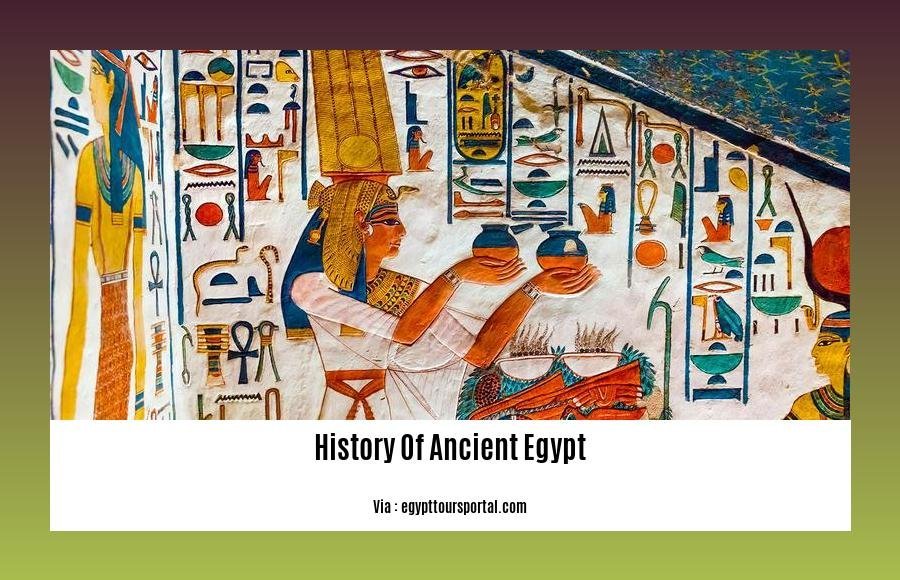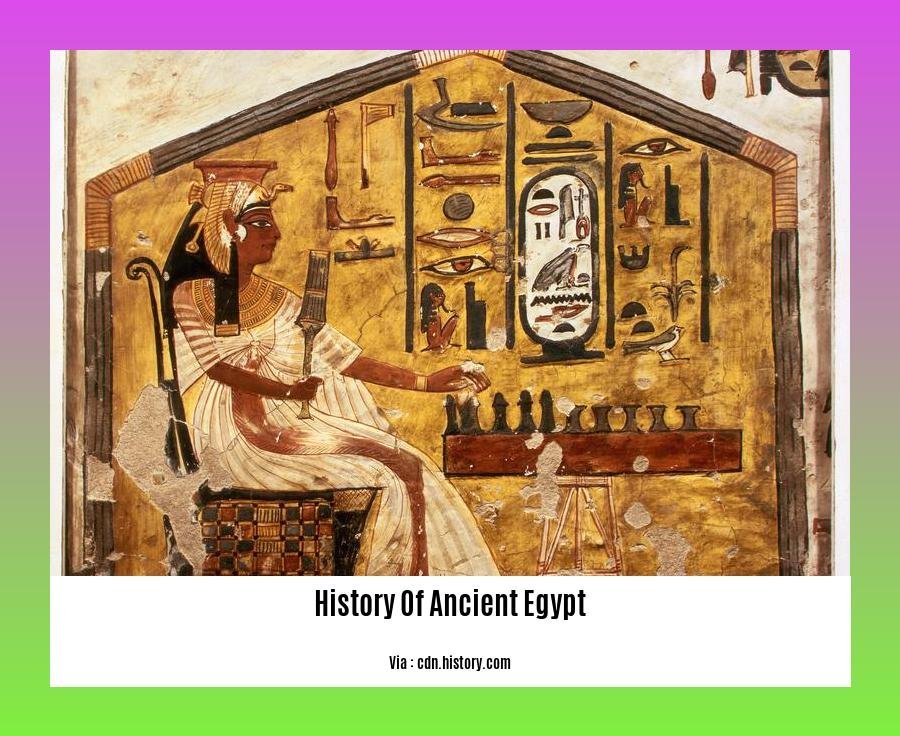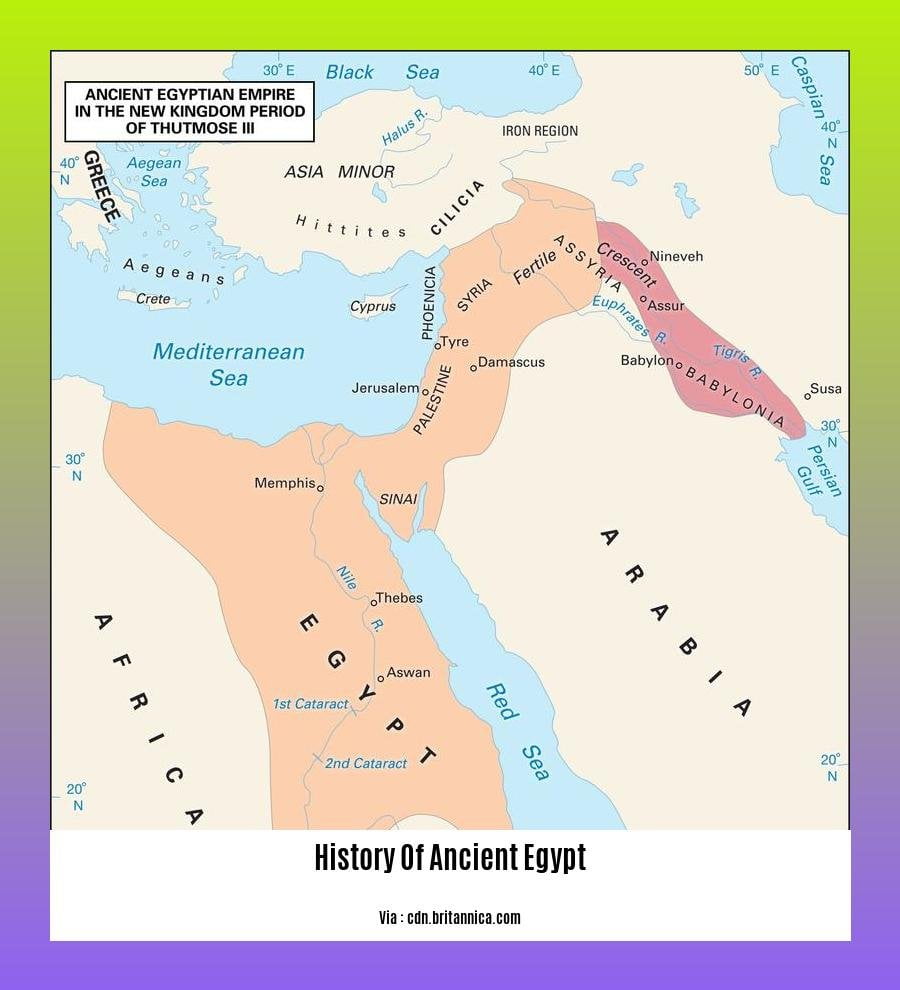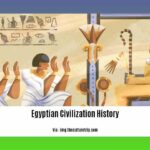Embarking on “An Exploration of the History of Ancient Egypt,” we delve into the enigmatic realm of one of humanity’s greatest civilizations. Step into the sands of time and uncover the secrets of the pharaohs, decipher the mysteries of hieroglyphics, and marvel at the architectural wonders that stand as testaments to ancient Egyptian ingenuity. Join us on this captivating journey through history as we unravel the intricate tapestry of ancient Egypt’s captivating past.
Key Takeaways:
- Ancient Egypt’s history spans from ancient settlements to being conquered by the Romans.
- Egypt’s pharaonic period lasted over 3,000 years and was divided into different dynasties.
- Key periods include the Old Kingdom (pyramids), Middle Kingdom, and New Kingdom (great conquests).
- The civilization declined during the Late Period and was eventually conquered by the Romans.
History of Ancient Egypt

Let’s voyage into the mesmerizing history of ancient Egypt, a timeline spanning millennia and brimming with grandeur and enigma.
The Early Era:
– As early as 6,000 years ago, settlements thrived along the Nile River.
– The unification of Upper and Lower Egypt circa 3100 BC marked the beginning of Egypt’s dynastic period.
The Pyramid Age:
– From 2700 to 2200 BC, the Old Kingdom flourished, witnessing the construction of iconic pyramids, including the colossal Great Pyramid of Giza.
The Golden Age:
– The Middle Kingdom (2055-1650 BC) ushered in an era of stability and prosperity.
– The New Kingdom (1550-1069 BC) was a period of military power and artistic triumph, exemplified by the reign of King Tutankhamun.
Decline and Fall:
– Invaders and internal strife plagued Egypt in the following centuries.
– The Ptolemaic dynasty, established by Alexander the Great’s general, ruled Egypt from 305 to 30 BC.
– The Roman Empire annexed Egypt in 30 BC, ending the pharaonic era.
Unveiling the Past:
– The hieroglyphic and hieratic scripts preserved Egypt’s written history.
– Archaeological excavations continue to reveal breathtaking artifacts and structures.
Legacy of Egypt:
– Ancient Egypt left an indelible mark on world civilization.
– Its architectural marvels, religious beliefs, and artistic achievements still captivate us today.
– The study of Egypt’s history of ancient Egypt continues to ignite our imaginations and shed light on the brilliance of this ancient civilization.
Dive deep into the captivating history of Egypt’s pharaohs and their legendary reigns by following egyptian pharaohs history link. Discover the chronological progression of ancient Egypt’s fascinating past and unravel the mysteries of its iconic monuments by clicking on ancient egypt timeline. Additionally, embark on a journey to understand the profound significance of Egypt’s ancient civilization by visiting egyptian civilization history.
History of Ancient Egypt Book

Key Takeaways:
– The Oxford History of Ancient Egypt is the only single-volume history in English.
– It covers c. 700,000 BC to AD 311 and includes essays and illustrations that offer an accessible exploration of this fascinating civilization.
The history of ancient Egypt is a vast and complex subject, but its enduring legacy captivates us still. From the towering pyramids of Giza to the intricate hieroglyphics that adorned temple walls, the achievements of this ancient civilization continue to inspire awe and wonder.
The study of ancient Egypt is a multidisciplinary field that draws on archaeology, history, linguistics, and art history to piece together the story of this remarkable civilization. Through careful excavation and analysis of artifacts, scholars have been able to reconstruct the political, social, and economic life of ancient Egypt. They have also made significant progress in deciphering the hieroglyphic script, which has opened up a wealth of information about the beliefs and practices of the ancient Egyptians.
One of the most important sources for our understanding of ancient Egypt is the Oxford History of Ancient Egypt, edited by Ian Shaw. This single-volume work provides a comprehensive overview of Egyptian history from its prehistoric origins to the Roman conquest in 30 BC. The book is written by a team of leading experts in the field and is lavishly illustrated with maps, photographs, and drawings.
If you are interested in learning more about the history of ancient Egypt, I highly recommend the Oxford History of Ancient Egypt. It is an essential resource for anyone who wants to gain a deeper understanding of this fascinating civilization.
Citation:
Shaw, I. (Ed.). (2000). The Oxford History of Ancient Egypt. Oxford University Press.
FAQ
Q1: What are the key periods in ancient Egyptian history?
A1: Ancient Egyptian history can be divided into several key periods, including the Early Dynastic Period, Old Kingdom, Middle Kingdom, New Kingdom, and Late Period. Each period is characterized by distinct rulers, cultural achievements, and historical events.
Q2: What is the significance of the pharaonic period in ancient Egypt?
A1: The pharaonic period marks a significant era in ancient Egyptian history, spanning from the unification of Upper and Lower Egypt to the Roman conquest. This period witnessed the rise and fall of powerful pharaohs, the construction of iconic monuments, and the development of a complex civilization.
Q3: What are the different sources of information about ancient Egypt?
A1: Our understanding of ancient Egypt is based on various sources of information, including archaeological evidence, hieroglyphic inscriptions, papyri, and works by ancient historians. These sources provide valuable insights into the political, social, and cultural aspects of this ancient civilization.
Q4: What are some of the most important historical events in ancient Egypt?
A1: Ancient Egyptian history is marked by several significant historical events, such as the unification of Egypt, the construction of the pyramids, the reign of powerful pharaohs like Ramses II, and the conquest of Egypt by Alexander the Great and the Romans.
Q5: What are the main contributions of ancient Egypt to world civilization?
A1: Ancient Egypt made significant contributions to world civilization, including the development of hieroglyphic writing, the invention of papyrus, advancements in mathematics and astronomy, and the construction of architectural marvels like the pyramids and temples.
- Mastering Leader in Spanish: The Complete Guide - April 19, 2025
- Uncovering Surprising Parallels: England Size Compared to US States - April 19, 2025
- Old Mexico Map: Border Shifts 1821-1857 - April 19, 2025
















